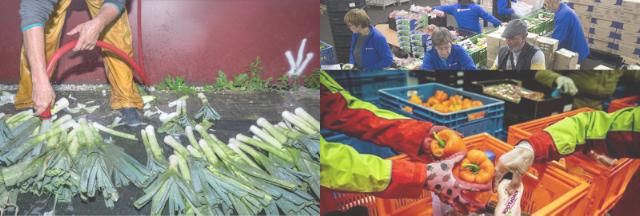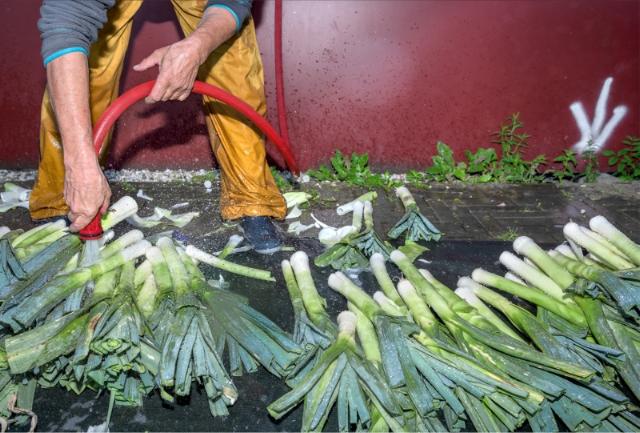
#7 EFFICIENT FOOD BANK NETWORKS
#7 EFFICIENT FOOD BANK NETWORKSLiving Lab #7: Efficient food bank networks
Concurrently addressing food waste and food insecurity
Efficient food bank networks
Food banks aim to address both food waste and food insecurity. European food banks organized within FEBA for instance redistributed 860,000 tonnes of food in 2020, helping more than 12 million food-insecure people.
But the underlying donation-driven supply chains can be quite difficult to manage: the dynamics of supply and demand are very different than in ‘normal’ food supply chains, as SILL 7 researchers recently also discussed in detail in a scientific article Dealing with donations: Supply chain management challenges for food banks (Akkerman et al., 2023).
Addressing supply fluctuations
The food donations that make up the supply of food banks are a very dynamic and erratic product flow, resulting in inefficiencies in utilizing the donations. And in the context of food banks, inefficiencies lead to more food waste (or less redistributed food) and less food-insecure people supported!
This Living Lab aims to support the efficient matching of supply and demand, with the goal to improve food waste reduction strategies while still addressing the food bank’s goals to address food insecurity.
Economy based on volunteers
Food bank supply chains are often completely run by volunteers.
For instance, in the Netherlands, more than 12,000 volunteers are active in a national network with 10 regional distribution centres and more than 500 local distribution points.
In this network, every year, more than 40 million products are redistributed to over 150,000 people.
In that way, a significant amount of food is saved from being wasted and actually ends up with people who need it the most!
Source: voedselbankennederland.nl
Objective
The overall objective of this Living Lab is to develop several models and tools that support decision making at food banks, and at companies donating to food banks.
Building on predictive and prescriptive analytics, we specifically aim to develop prediction tools for both supply and demand at food banks, a decision support tool to reduce waste at food banks, as well as a donation tool to advise donors what products would be suitable for donation.
An example of the kind of decision support tools built within the project was recently published in a highly ranked academic journal. The article describes an optimization model built to help food banks decide on where to invest to maximize their social impact, meaning that as much food waste as possible gets redistributed to the food bank’s beneficiaries. More information can be found in the paper A food bank supply chain model (Reusken et al., 2023).
In terms of the supply and demand prediction, we are also developing dashboards to provide practical tools to use in the food bank context. These dashboards help identify trends and developments in both the need for food bank services, as well as in the donation flows. For instance, the use of these dashboards can help identify which product groups are decreasing or increasing in certain regions, and would require attention from the perspective of targeted donation acquisition efforts or redistribution efforts within the food bank network.

Partners
The work in this Living Lab is mainly done by researchers from two Dutch universities: Wageningen University and Tilburg University.
From Wageningen, researchers from the Operations Research and Logistics group are involved; one of the largest supply chain research groups focused on the design and planning of food supply chains.
From Tilburg, researchers from the Zero Hunger Lab are involved; an institution with the goal to use data science to contribute to realizing global food security.
See video: Systemic Innovation Living Lab 7
Food waste reduction through efficient food bank networks

Contact
Renzo Akkerman
Operations Research and Logistics group
Wageningen University
The Netherlands
renzo.akkerman@wur.nl

Contact
Frans Cruijssen
Zero Hunger Lab
Tilburg University
The Netherlands
frans.cruijssen@tilburguniversity.edu
